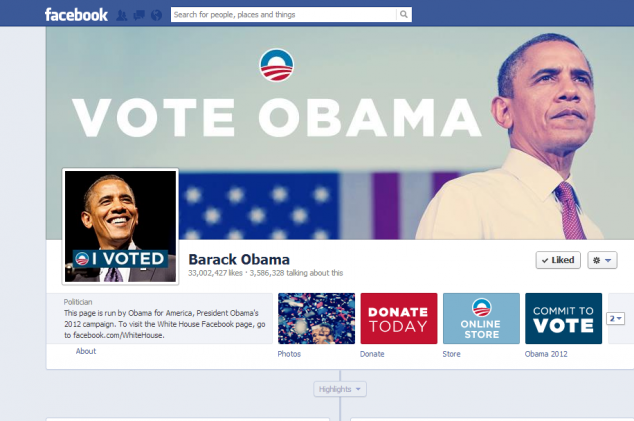
So with the hype dying down following the re-election of the 44th President of the United States of America, what have we really learnt?
Well a number of things in my humble opinion. Perhaps one of the most important things for me personally has been the importance that both candidates have placed on the use of social media platforms, and the differing styles used by both in engaging with both their die-hard voters and in trying to engage with the so called ‘floating’ voters. Although as I’ll discuss later, I use the word ‘engage’ rather loosely.
Obama’s 2008 Facebook revolution
Most people are aware that Obama used Facebook in 2008, not just to engage with voters and push his campaign literature as well as driving traffic to his You Tube channel, but also to help fund his successful quest for the White House. This was one of the biggest developments in American presidential campaign funding, certainly in the last 25 years; allowing the average man on the street to donate a small sum of money to a politician to help with their election campaign, thus removing the reliance on wealthy individuals, who will rarely give money without having some form of ulterior motive. Remember the scandal that surrounded paying for dinner dates with David Cameron?
Although funding rules in the USA have changed slightly since 2008, with corporations now being able to donate more easily to candidates, it highlighted the power of social media to galvanise large groups of people to enact something of a social change. Indeed Obama still used this method to part fund his campaign in 2012, and with over 32 million 'likes' on Facebook, it doesn’t take a genius to work out why. Even if just half of these people are based in the USA and as such able to contribute, and suppose just half of those people were willing to donate $10, this would still add up to $80,000,000, which although not a large sum of money (in American electoral terms) is still a significant contribution.
‘Following the election’
Moving away from funding though, it is interesting to also look at the way both candidates used Twitter and Facebook. Both had extremely active accounts on each platform however a piece of research by Mindshare,( Available at The Drum ) shows that Republican voters were 12% more likely to follow the election through social media outlets, going against the popular belief that Obama has drawn much of his support through his consistent use of social media.
There may however be a number of other reasons for this, not least the fact that Obama and the Democrats have traditionally drawn much of their support from less affluent and ethnic minority groupings that traditionally have lower take up rates of social media (particularly Twitter). It is also difficult to judge what people would classify ‘following the election ‘as. Should looking at your Twitter feed and seeing that a journalist you follow recently posted a link to a piece they have written about an election really classify as ‘following’ the election through social media? Personally I would say not, but others may disagree, so it really all boils down to perceptions.
It's engagement.......stupid
One final point worth noting, which I often think that many companies using Twitter and Facebook forget is the fact that ‘social media’ includes the word ‘social’. This is backed up by Ishbel MacLeod writing in The Drum saying: “On Twitter, three per cent of the 404 Obama campaign tweets were retweets of citizen posts, while Romney's only retweet was something his son Josh had written: hinting that the social aspect of social media was not seen as hugely important during the campaign, rather as a platform to make views known.”
Well, to me this would seem to be forgetting entirely the point of social media, particularly when used by politicians. If it isn’t to bridge the gap that often seems to exist between the ruling elite and those who elect them, then I can’t really see the point in using such platforms. I believe this is often the same for organisations looking to use social media too. Personally I like a company that makes contact with as many people with a valid point as possible and tries to encourage transparency through its use of the platforms. If they aren’t doing that, then they may as well just send out a monthly newsletter and be done with it.
Symmetrical communication the key
Not that I’m saying there is anything wrong with the monthly newsletter, or indeed print journalism, I’m still a big fan of both, and don’t really subscribe to the view that such mediums will be entirely replaced by social media. I just believe that if you are going to set up social media platforms as a way to communicate with people, supposedly as a form of symmetrical-two way communication, as PR academics Grunig and Hunt aspired to in their theory of 1984, then you need to make sure it is truly symmetrical. Only then are you really reaping the benefits of what can be such a powerful tool for the modern organisation.








